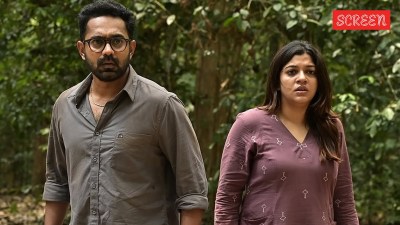‘Quest explores more facets of sexuality’
The actor-turned-director talks to SUNANDA MEHTA about his new English-Marathi film and how he shot it in 24 days flat

What prompted you to make Quest/Thaang a bilingual endeavour?
This genre of bilingual films was the order of the day earlier. Prabhat Studios regularly made films in Hindi and Marathi like Aadmi and Manus or Kumkum and Duniya Na Mane. But yes, a Marathi-English combination is unusual. The original idea was to make it only in Marathi as I do have a commitment towards regional cinema.
However, when the script was ready and we had reading sessions with people from diverse fields and backgrounds, what came out very distinctly was the universal nature of the subject. So the thought came—why not make it in English too? I discussed the idea with the unit and everyone was extremely excited about it and we decided to go ahead.
How was the experience?
We made the film in 24 days flat… most of my films, in fact, are made like that—in a record number of days. It was a wonderful experience. We shot simultaneously for both languages—each scene was thus canned twice, even the silent ones. We would joke with the actor—okay you’ve walked from here to there in Marathi, now do it again in English.
Your cast is predominantly from the Marathi cinema though…
Yes, and they have done an exceptional job. Each one of them has given their best and come up with solid performances. I must say this current crop of Marathi actors are very fine artists.
What is the storyline of Quest and how does it complete your trilogy—after Daayra and Anaahat—on man-woman relationships and female sexuality?
When I made Daayra, I had no idea what I was on to. When I started work on Anaahat, I could see a link. I seemed to have started on a thematic journey and I just thought it would be nice to be able to make a trilogy and I am happy that I was able to do so—to complete the journey one started. Quest, however, explores many more facets of sexuality, delves into the various layers of human relationships and, unlike the earlier two, is not a period film but set in a very contemporary background. It talks about the fast-paced lives of professionals today.
The female protagonist in the film is a lawyer and her husband is the chief chef in a five-star in Mumbai.
They live this hectic life and I have tried to show how in a moment of crisis, their own lives come to a standstill, even as other things around them keep going at the same hectic pace. They have to balance this personal crisis with their professional demands and the demands of other relationships.
Have you got over the fact that Paheli did not make it to the Oscar nominations?
We were already into Quest when all the Oscar hype about Paheli was happening. So actually I had already moved ahead and that’s how it should be. Paheli was beautifully made and I am very proud of the film. If it’s acclaimed, I am happy. If not, it’s not the end of the world.





- 0118 hours ago
- 0219 hours ago
- 0319 hours ago
- 042 hours ago
- 0519 hours ago


























